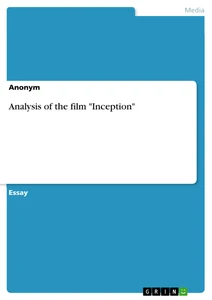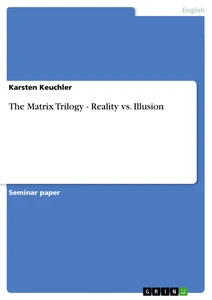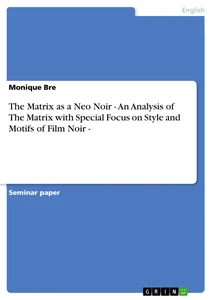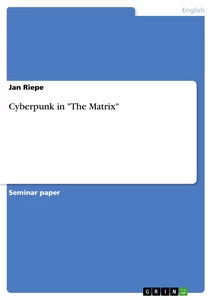Philosophy, as one of the most extensive fields of study, grapples with countless questions across numerous topics. From metaphysics to practical, everyday philosophy, it offers exciting opportunities for film and television. Below, we’ve compiled 10 thought-provoking movies and series that (directly or indirectly) engage with fundamental philosophical questions.
Movies
Cartesianism
The term “Cartesianism” in philosophy primarily refers to the epistemological position that human knowledge should be founded on indubitable insights. Named after René Descartes, this approach advocates questioning all knowledge to arrive at undeniable truths rooted in self-certainty.
The Truman Show (1998)
Jim Carrey stars as Truman Burbank, a man who appears to lead an ordinary life until he discovers that his world is an elaborate, staged show with himself as the unwitting star.
From a philosophical perspective, this film explores Cartesian questions about truth and the human perception of reality. Plato’s Allegory of the Cave can also be interpreted in this context.
Streaming on: Amazon Prime Video, Apple TV, Google Play Movies & TV
Inception (2010)
This science fiction action-thriller by Christopher Nolan tells a complex story of dreams within dreams. Starring Leonardo DiCaprio, the film won four Oscars.
Dream worlds layered within dream worlds blur the lines of reality, raising philosophical questions about truth and our perception of it. Is something real simply because we experience it? Conversely, why wouldn’t it be real if we can see and feel it?
Streaming on: Amazon Prime Video, Apple TV, Google Play Movies & TV, Netflix
The Matrix Trilogy (1999 – 2003)
The Matrix trilogy depicts a world entirely created by a computer. Everything surrounding the protagonist, Neo, is revealed to be a simulation, leading to a battle for human freedom against artificial determinism.
These classics bring Descartes’ malicious deceiver to life as a highly intelligent machine. The idea of a higher being intentionally withholding reality and presenting an illusory world echoes Descartes’ famous conclusion:
“Cogito ergo sum.” – I think, therefore I am.
Streaming on: Amazon Prime Video, Apple TV, Google Play Movies & TV, Netflix
Our recommendations:
AI/Transhumanism
One of the most relevant topics in contemporary philosophy is the ethical framework for artificial intelligence. Often intertwined is transhumanism, which seeks to enhance humanity beyond its natural and biological limits through technology.
Transcendence (2014)
Will Caster (Johnny Depp), a brilliant scientist specializing in artificial intelligence, faces a life-threatening attack due to his work. His wife manages to transfer his mind and emotions into a computer, creating opportunities and dangers never before imagined.
The transition from human to machine raises profound questions: When does a human become a machine? How long can one remain human? Does mortality define humanity? In an era of technological augmentation, “Transcendence” addresses practical and ethical questions about transhumanism.
Streaming on: Amazon Prime Video, Apple TV, Google Play Movies & TV, Netflix
Ex Machina (2014)
A young programmer collaborates with a successful entrepreneur who has created the first “true” artificial intelligence. The protagonist, Caleb, begins to see more than just a machine in the AI robot, and unexpected emotions emerge.
Can humanity be recognized in a machine? Alongside references to the Turing Test, which assesses a machine’s intelligence, the movie explores the boundaries of human love and consciousness.
Streaming on: Amazon Prime Video, Apple TV, Google Play Movies & TV, Netflix
Happiness and Freedom
Questions about happiness and freedom have intrigued humanity since the beginning of time. The following movies subtly explore these concepts, offering new perspectives on their meaning.
Dead Poets Society (1989)
At a rigid elite boarding school, new teacher John Keating (Robin Williams) inspires his students to embrace free thinking and a love for literature. His unorthodox methods quickly gain the students’ admiration but arouse skepticism among the staff and parents.
This drama portrays the pursuit of freedom and critical thinking. With Romantic ideals at its core, it highlights humanity’s yearning for beauty and goodness in life.
Streaming on: Amazon Prime Video, Apple TV, Disney+, Google Play Movies & TV
The Little Prince (2015)
A young girl lives a tightly scheduled life dictated by her mother’s ambitions to prepare her for adulthood. She meets a pilot who introduces her to the world of “The Little Prince”.
This heartwarming movie reminds us of the importance of imagination and freedom for a happy life. Beneath its charming surface lies a critique of societal values, as Antoine de Saint-Exupéry’s 1943 work—on which the film is based—addresses the erosion of values in society.
Streaming on: Amazon Prime Video, Apple TV, Google Play Movies & TV
Little Miss Sunshine (2006)
This heartwarming story about seven-year-old Olive won two Oscars: She is so enthusiastic about beauty pageants that she decides to participate in the “Little Miss Sunshine” competition herself. With humor, the movie portrays the dreams of a child and the struggles of her dysfunctional family.
As another “philosophically light” entry on this list, “Little Miss Sunshine” explores the fundamental human pursuit of happiness amidst a family with partly nihilistic members and entirely mixed worldviews. This colorful mix also touches on familial issues of tolerance and care, as well as fundamental principles of justice that Olive must face on her journey.
Streaming on: Amazon Prime Video, Apple TV, Disney+, Google Play Movies & TV
Series
Black Mirror (2011–2023)
Each standalone episode of this anthology series explores dystopian futures, pairing cutting-edge technological advancements with humanity’s darkest instincts.
The series raises diverse philosophical questions, including freedom, humanity, transhumanism, and the ethics of technological development. By often presenting worst-case scenarios, “Black Mirror” challenges viewers to reflect on current trends and issues.
Streaming on: Netflix
Neon Genesis Evangelion (1995–1996)
This significant anime production revolves around the battle in a dystopian Tokyo against beings referred to as “Angels.” To defend humanity, specially chosen teenagers pilot “Evangelion units”—gigantic robots deployed by an organized effort. Over time, we witness the immense psychological pressures the main characters face and the dilemmas they inevitably encounter.
This is far from a simple action series. Appearances can be deceiving, as the show delves into fundamental philosophical questions alongside its controversial ending. Themes of individuality, freedom, and responsibility are central, with director Hideaki Anno incorporating direct references to philosophical works within the series. For instance, Episode 16 can be translated as “The Sickness Unto Death” (a nod to Kierkegaard’s well-known work), and an opposing organization is named WILLE, referencing Schopenhauer’s concept of the will.
Streaming on: Netflix
Do you like our magazine?
Then sign up for our newsletter now!














